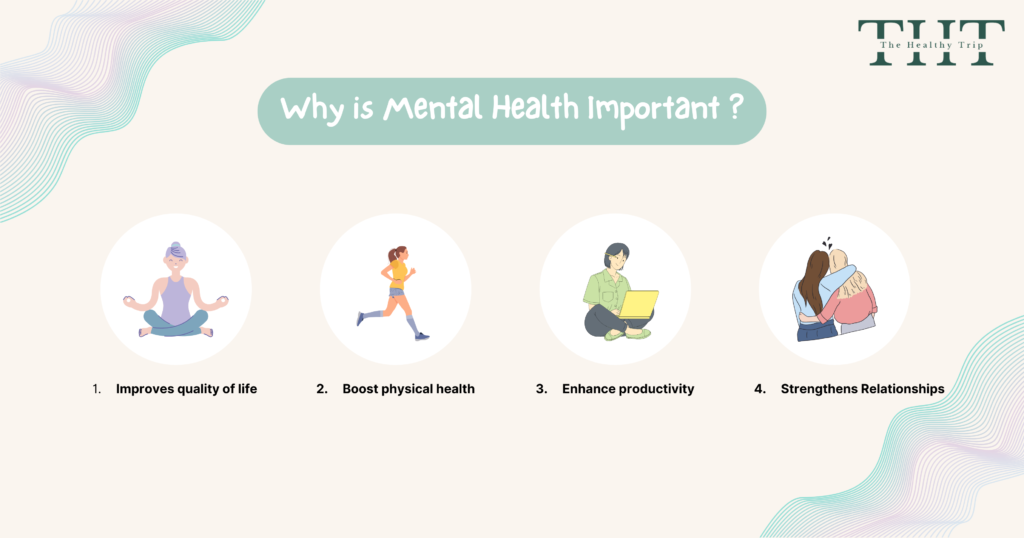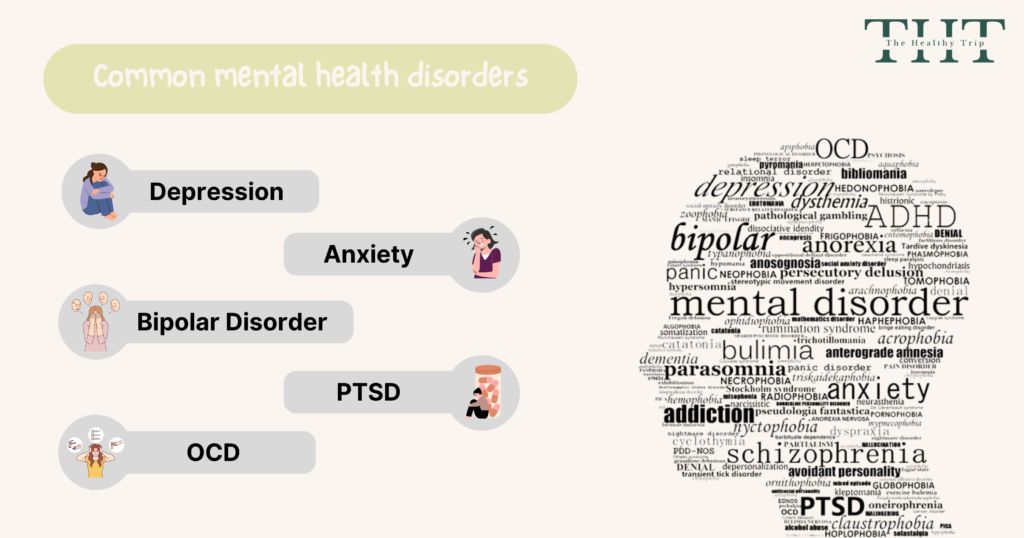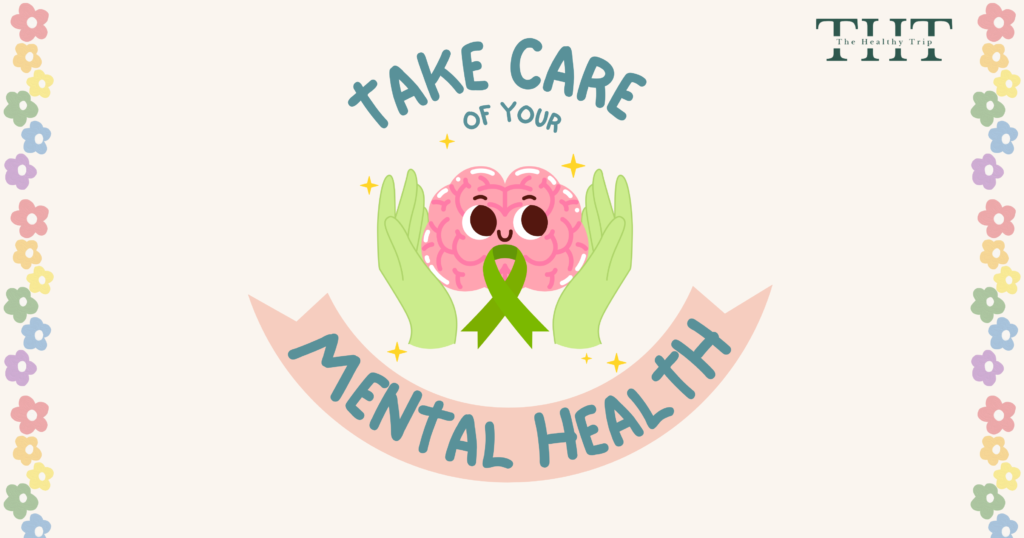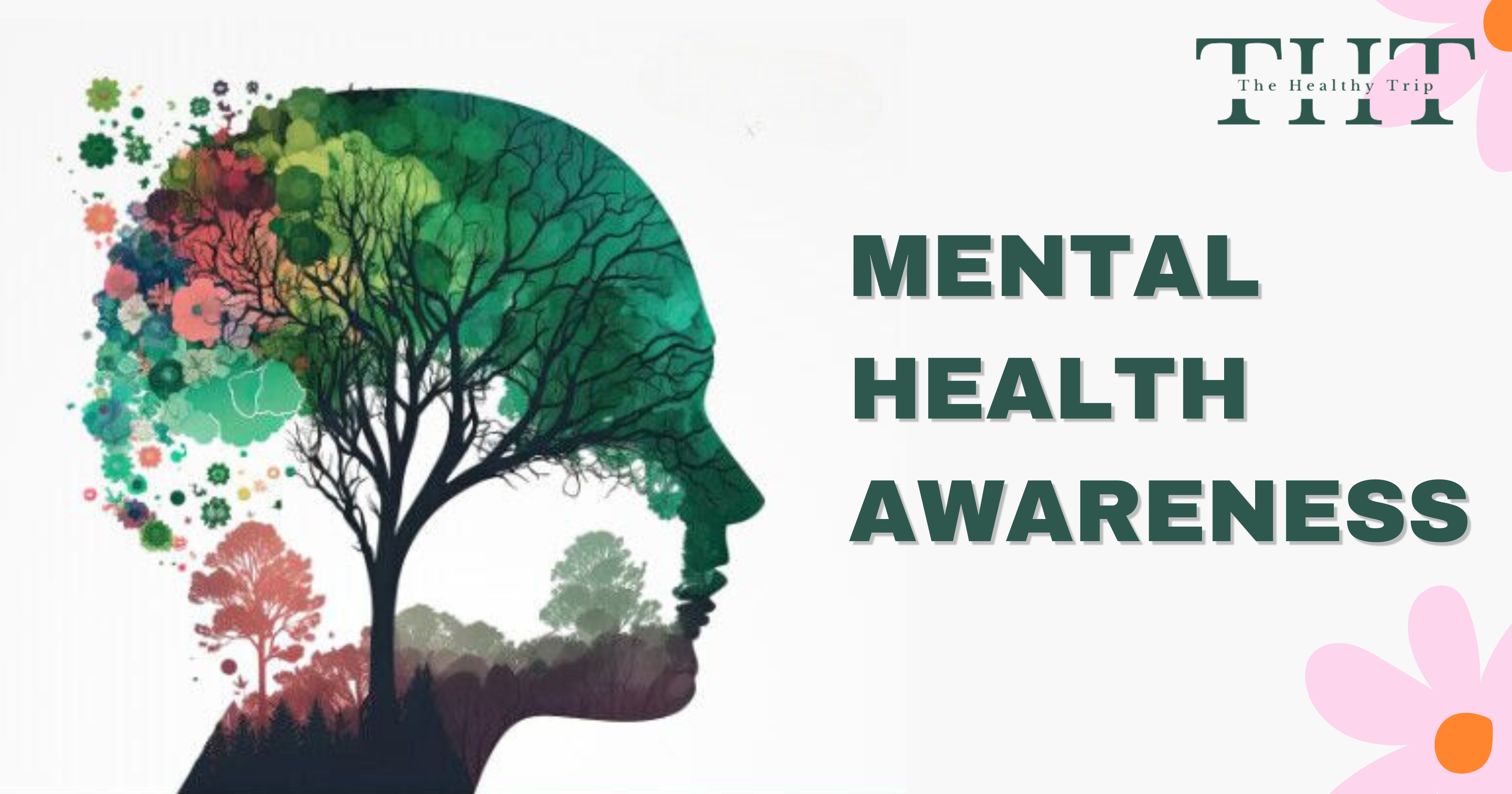Welcome to The Healthy Trip – A journey of good health and well-being. Major Components of our overall well-being – Mental Health. Understanding mental health, its importance, and how to nurture it can make a significant difference in our lives. Let’s take a journey to better
mental health awareness together.
What is Mental Health?
Mental health is emotional, psychological, and social well-being. It affects how we think, feel, and act. It also helps to determine how we in an individual frame stress as well as how to engage in people and the decisions made. Mental health has to be retained in every age interval ranging from childhood and teenage years and into adulthood.
Key Aspects of Mental Health
1. Emotional Wellbeing: It consists analytical skills as well as self-regulation of the emotions one has. One can make use of such psychological aspects to overcome the stress and challenges in a healthy manner.
2. Psychological Well-Being: This has to do with cognitive awareness of the information and events that one encounters or experiences. It will influence how someone thinks about or reacts to their environment and even the people in it.
3. Social Well-Being: This concerns how well you relate with other people. Social well- being helps you in nurturing and sustaining all the healthy connections that you make.
Why is Mental Health Important?
Good mental health is more than what people regard as the absence of mental illness. It is possessing the ability to create success, growth or wellbeing despite all the daily challenges one may face. Here are some reasons why mental health is very important:
1. Improves Quality of Life – The overall quality of life of the individual is up lifted due to the right mental health. It enables an individual to engage in his or her daily activities, develop healthy attachments with other persons, and even achieve goals and aspirations.
2. Boosts Physical Health – The mind and body depends on each other. One can have so much stress that the body begins developing ailments like, for instance, heart problems, stroke, or even obesity. Conversely, good mental health will enhance one’s physical well-being.
3. Enhances Productivity – Optimal mental health is a critical factor for one to be able to perform tasks without any problems. For example, there is better focus, enhanced imagination and quicker execution of tasks. This is not only advantageous when it comes to personal goals but is equally applicable in the working environment.
4. Strengthens Relationships – Better mental well-being assists you in creating more fulfilling and nurturing bonds. It allows you to communicate, be understanding, and resolve disputes properly.

Common Mental Health Disorders
Understanding common mental health disorders can help in recognizing signs and seeking
appropriate help. Some prevalent mental health conditions include:
1. Depression – Depression is more than just feeling sad. It is a complex medical illness that affects how a person feels, thinks, and how he handles himself in daily activities. This may be accompanied by persistent low mood, loss of pleasure from activity, changes in weight and sleep, and inability to focus.
2. Anxiety Disorders – Anxiety disorders are characterized by excessive fear or anxiety about a situation. It comprises of many disorders such as: generalized anxiety disorder (GAD), panic disorder, social phobia among others. Symptoms can include fidgeting, increased heart rate and insomnia.
3. Bipolar Disorders – Individuals suffering from bipolar disorder have very severe changes in their modes of sleeps; extremely high periods of mood (mania) and depression. These swings in mood can alter sleep patterns, energy levels, activity, judgment, behaviour, and thought clarity.
4. Post-traumatic stress disorder (PTSD) – PTSD refers to a condition that may be experienced following exposure to or witnessing events of extreme horror. This is characterized by flashbacks, recurrent dreams, extreme fear, and fixation on the occurrence.
5. Obsessive compulsive disorder (OCD) – Occurs when the individual suffers from unwanted, intrusive thoughts also known as obsessions and repetitive actions also known as compulsions. These behaviors are often carried out to relieve distress but tend to be disruptive to everyday functioning.

Recognizing the Signs of Mental Health Issues
Recognizing the signs of mental health issues is the first step towards getting help. Here are some
common signs to watch out for:
– Constantly being felt sad or down for long
– Considerable presence of confusion in thoughts or reduced ability to pay focus on activities
– Excessive fears or worries – Too upbeat or too low
– Isolation from friends and hobbies
– Unusual tiredness and fatigue, or even sleep disorders
– Performance of unrealistic acts (delusions), haughtiness, or sights that are not present (hallucinations)
– Incapacity to adjust to normal activities or pressures
– Difficulty in perceiving and interacting with the environment and individuals around
– Drug or alcohol dependency
– Drastic change on what one eats
– Alterations in one’s sexual desires
– Over the limits anger, aggressiveness, or assault
– Thinking About Ending One’s Life
If you or someone you know is experiencing these symptoms, it’s essential to seek professional help.
Steps to Improve Mental Health
Improving mental health is an ongoing process that involves making healthy choices and adopting
positive habits. Here are some steps you can take to enhance your mental well-being:
1. Stay Active – It goes without saying that there is a strong link between mental health and regular training. As much as this is an “exercise” tone, the truth is that training bumps up levels of endorphins or other chemicals causing mood elevation. Try to be physically active for at least half an hour on most days of the week.
2. Eat a Balanced Diet – The phrase you are what you eat might come when least expected but it certainly holds some truth since what one eats directly affects in this case the mood and the energy levels. A healthy diet comprising of fruits, vegetables, lean meat and whole grain products is recommended in this case to ensure proper mental health. Cut down on excess sugar and caffeine and alcohol consumption since they might alter your moods.
3. Get Enough Sleep – Sleep patterns affect and contribution to mental health. Make an effort to sleep for 7-9 hours in a day. Sleep patterns can as well be improved by having specific times for going to bed and waking up, and having an easy and enjoyable activity prior to going to bed.
4. Practice Mindfulness and Meditation – Activities such as mindfulness and meditation have a way of lessening stress as well as enhancing the overall psychological wellness of a person. These are the concepts that help individuals remain in the present while enhancing their self perspective.
5. Build Strong Relationships – Relationships are essential for good mental health and well-being, and therefore there should be a supportive network. Allocate some time for your loved ones and friends and also look for entertaining activities and participate in them. You should never shy away from seeking assistance whenever you are in need.
6. Seek Professional Help – If your mental health is not in the right state and you are not in any way managing it, reach out for that help: psychotherapists, counselors or psychiatrists can help you immensely.
7. Participate in Activities You Like – Do not forget to take part in some of the hobbies and other activities that you cherish. Participating in such activities elevates one’s spirits and gives them a sense of achievement.
8. Manage Stress – One cannot overlook undue tension since it is part of our existence, but regular bouts of stress can affect one’s psyche negatively. One should learn how to cope with pressure by practicing some deep breathing exercise, yoga, and proper allocation of time.
9. Set Realistic Goals – Do not set impossible goals rather break them into levels that can be achieved. This will help in maintaining one’s enthusiasm and a feeling of progression and success.
10. Stay Positive – Always keep a positive attitude accompanied with appreciation. The good things in one’s life should be appreciated and any achievements congratulated even in case they are small.
Conclusion
The significance of mental health cannot be overstated as it is an aspect of one’s entire wellness that determines how one thinks, feels and behaves. Knowing the benefits of mental wellbeing, conceding to the existence of mental health problems and working towards improving proactively mental health among ourselves allows for better and satisfying quality of life.
At The Healthy Trip, we value the importance that comes with mental health education. Columbusing the other way to rid the world of discrimination, promote education on the issue, and encourage each other to ensure they have good mental state.
Remember, it’s okay to seek help, and it’s okay to talk about mental health. You’re not alone on this
journey. Let’s take the healthy trip together.











